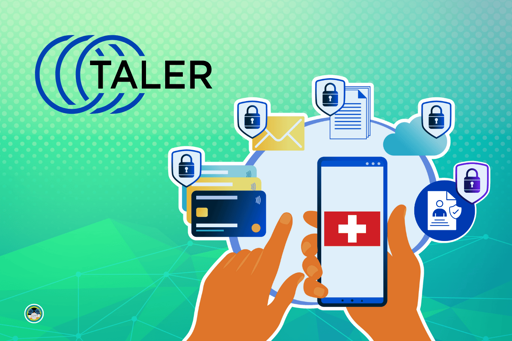GNU Taler begins operating in Switzerland, distributed by the Taler Operations AG. Gnu Taler aims to be a “digital wallet” and has been used by the swiss national bank as well as the european national bank as a example for how a digital currency handed out by the state could work. It aims to be as privacy preserving as cash for the buyer while not allowing the seller to evade taxes.
Currently the Taler is brought out by a special organisation, the “Taler Operations AG”, and not the national bank, although both the national bank as well as the Taler Team have shown interest in a official digial currency by the national bank based on the Taler. But we need to relativate as the national council has stated that the introduction of a digital currency would probably take relatively major legislative changes and therefore take a bit of time.
would be pretty based if they actually succeeds
Can we get GNU Taller to all europe please
Sounds a lot like Zelle.
Not really. Zelle seems to just be US banks implementing the payment and bank-to-bank transfer systems that other countries already have. Except, at least for Australia with our ‘Osko’ system it has the involvement of our Reserve Bank and is mandated to be supported universally, whereas Zelle is completely private. The traditional lack of that bank-to-bank transfer ability is why apps like Venmo and Cash App have been popular in the US, which I think explains why Zelle has had an app until last month, as consumers expect that, even though it’s owned by the major US banks.
Taler on the other hand seems to be “What if crypto but with fiat currency and also the recipients aren’t anonymous”.
Every US bank has the ability to wire money, but there’s no easy way to do it.
That’s the point I was making. In Australia, wire transfers through your bank are free, attached to a phone number or email address (rather than account numbers), almost always instantaneous and 24/7.
Various countries have cross method payment system that actually easier, cheaper (sometimes free), and faster than Paypal, Visa, and other US provider.
For example, indian UPI or Indonesian QRIS.
Indonesian QRIS even works with other banks and mobile wallet across Southeast Asia, India, Taiwan, China, and Japan.
I looked at this a looong time ago, but the basic idea is that the tokens (equivalent to cash coins/banknotes) are generated on the end user’s device, through some public-key cryptographic back-and-forth protocol. The issuer (bank/central bank/payment provider) does not see these tokens (they’re only on the end users device), but can verify that they’re legit (i.e. issued by them) somehow.
You can take one of these tokens to them, and deposit it in an account. They won’t know who it’s from but they know it was legitimately issued by them. Depositing a token is also supposed to be the only way of figuring out if it is a legit token, the bank will not tell you if a token is legit unless you deposit it.
When someone pays with these tokens in a shop, the shop will want to immediately (during checkout) deposit them, to make sure they’re legit, and also to make sure the token hasn’t been double spent. A shop that doesn’t do that makes itself vulnerable to fraud. This means shops will have a hard time hiding their revenue (to dodge taxes) compared to cash.
If someone you trust gives you a token (birthday money from your grandma, say), you don’t have to immediately deposit said token, since presumably you trust your grandma to not give you fake or double-spent tokens. Since you trust you grandma, there is no need to deposit the token and involve the bank, and that transfer would be untraceable (it’s literally just copying a number from her phone to yours).
The idea is that shop owners would have a hard time dodging taxes without opening themselves up to fraudsters using fake tokens, while the customer cannot be identified. You’d also be able to exchange tokens with family and friends in a way that isn’t traceable, as long as you trust them to not screw you over.
Dude, I assume my grandma has absolutely been scamed, and her birthday money is basically as valuable as Trump coins
Then you wanna deposit it immediately to find out, like a seller does
What is the relationship of fiat currency to tokens? is it €1:1 token?
The tokens can be worth different amounts. There can be 1 ¢ tokens, 10 ¢ tokens, 1 € euro tokens, 10 € tokens, whatever. Your wallet app will, when withdrawing, generate various tokens worth different amounts.
Using those tokens will be somewhat like paying in cash at a store that does not return any change. You gotta pay the exact amount. In order to facilitate that, you’d withdraw tokens worth only small amounts. There wouldn’t be like be any 50 € tokens in practice. If you wanted to withdraw 50 €, you’d get 1000 1 ¢ tokens, 100 10 ¢ tokens, and the rest 1 € tokens or something like that, to make sure you always have the exact amount ready to pay for anything.
Thats not true I think. Taler is able to anonymously give “change money”. https://youtu.be/fY-DWLHVLk4?t=2380 (39:40 timestamp)
Interesting, thanks.
“Based in Switzerland.”
I rather support a real European country and not a made up one.







